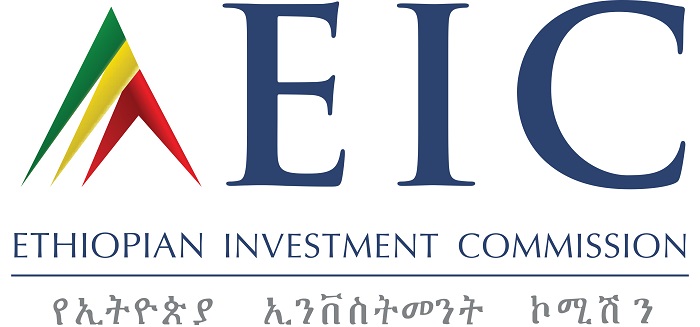Sunselet
Please tell us about Senselet and its history.
When was the company founded?
2015
Who founded the company?
Veris Investments from the Netherlands.
Can you please describe the history of the company?
Senselet was set up by Veris in 2015 to contribute to developing the potato value chain in Ethiopia. Senselet was involved in conducting different market studies, acquiring land and construction of the factory up to the end of 2017. Production and sales started in January 2018, and the company has been expanding its consumer outreach as well as smallholder farmer collaborations since then.
In which sector is the company engaged?
Food processing for consumer goods.
What is the objective of the company?
Our objective is to build a financially healthy and sustainable snack business while contributing to the development of the potato value chain in Ethiopia, serving consumers with high-quality, affordable products.
What is the production capacity of the business?
300 kg of chips per hour.
How many people does the company employ?
Approximately 250.

Any milestones (e.g. major partnerships agreements, expansion investments, shipment/production targets, etc.)
Our company has established strong business partnerships (see below.) More recently, though, we began a new chapter in our business. Having PepsiCo as a partner will enable Senselet to leverage PepsiCo’s extensive global expertise on potato cultivation, manufacturing and go-to-market capabilities to further grow the company. PepsiCo also shares our commitment to working with small and medium-scale Ethiopian farmers as well as developing the potato value chain and sustainable farming in Ethiopia.
Can you tell us a little bit about yourselves (e.g. name and position in the company, role and responsibilities, why you personally are passionate about, why you established/joined the company, etc.)?
My name is Chris Wijnterp; I am the general manager of Senselet. At Senselet we are passionate about providing high-quality products to our consumers all over Ethiopia, while creating impact through our employees and the Ethiopian farmers we are working with. We have built our organization on strong values and principles and believe integrity and compliance are the foundations of doing business in our community. Finally we want to build strong partnerships with all stakeholders in the full value chain, from farmers through to our consumers, creating a smile with every bite of SUN Chips.
How did you become interested in investing in Ethiopia?
Ethiopia is a country that has substantial potential for growing potato, but this potential has been largely untapped. The potato value chain is underdeveloped due to a shortage of high-quality seed varieties, seed producers, technology, logistics, storage, potato knowledge and processing capacity. Senselet invests in the potato value chain and wants to link farmers to the market.
What are the advantages of doing business in Ethiopia?
Ethiopia has a young and emerging population who are eager to develop. On top of that, there is a growing economy with an agricultural background which bring immense opportunities. Finally, Ethiopia has a great climate for growing high-quality potatoes.
How is Ethiopia’s FMCG market different from that in other parts of the world?
The FMCG marker is developing and as such still largely traditionally operated, which creates challenges to reach all Ethiopian consumers but also brings opportunities to be close to the homes of the consumers via a wide network of souks and having a more personal relationship with our customers
On that note, what are some trends you are seeing in the Ethiopian fast-moving consumer goods (FMCG) market?
That sector is developing, and our population is urbanizing. We have seen also there is more focus on healthy and quality products – which aligns with our strategy of delivering high-quality product to consumers, being transparent with regard to ingredients, and providing consistent and safe food.
Were there any challenges your firm faced while doing business in Ethiopia?
We had some challenges when dealing with different government entities coming from bureaucracy in the system. Lack of foreign currency is another issue. Finally, doing business at international standards within the local context can be challenging, while available facilities such as electricity, water and waste management are scarce.
Were there any specific strategies that Senselet established to better adapt to the Ethiopian market?
Yes! find good local people fast to grow a strong local organization while staying close to the communities we operate in.
What is Senselet doing to rise above the competition in the Ethiopian FMCG market?
Focusing on our consumers and delivering high-quality product with integrity, while working with the local community and partners to deliver maximum value.
What Ethiopian companies/government agencies do you work with to strengthen your business partnerships?
The company has established strong business partnerships with local farmers over the past three years. Partners that have substantially contributed to the success of Senselet include the Dutch Government (Netherlands Enterprise Agency), Ethiopian Institute of Agricultural Research, Wageningen University and Research, the Ethiopian Investment Commission and regional government bureaus.
What advice would you give foreign investors/companies seeking to enter the Ethiopian market?
Understand the local context, including local laws and standards. Have patience and partner with the Ethiopian Investment Commission and make sure to have internal solutions to forex issues. Don’t expect miracles in the market as every investor will have its fair share of business challenges. And of course, always work with local communities.
How can Ethiopia become a more ideal business environment for foreign companies like Senselet?
Simplify regulation and procedures at all the various government entities, not only at higher levels but also on the ground. Be consistent in regulations and avoid sudden policy changes which can impact doing business for the investor. Transparency and consistency help investors conduct solid planning and preparation while avoiding surprises. Make sure to put basic infrastructure in place for operations and administration.
How has the COVID-19 pandemic changed the way your company is conducting business here?
COVID had a severe financial impact on us. This resulted in having more patience to grow the business, but also increasing the entrepreneur spirit and agility within our team. It has also driven an even stronger focus on food safety and hygiene standards to provide consumers with consistently high-quality products.
What are some future plans/goals that Senselet has in terms of doing business in Ethiopia?
Winning the hearts of our consumers in the snacks market through expanding our portfolio while contributing to the development of the potato value chain and smallholder farmers.
Related Articles
Sunselet – PepsiCo Invests $40m to Expand Snacks in Ethiopia
Senselet was set up by Veris in 2015 to contribute to developing the potato value chain in Ethiopia. Senselet was…November 28, 2022
Crown Packaging – Leading the packaging sector in the FMCG market
In 2009 the founders visited Ethiopia for the first time. There they saw the need for jobs and import substitution…November 28, 2022

